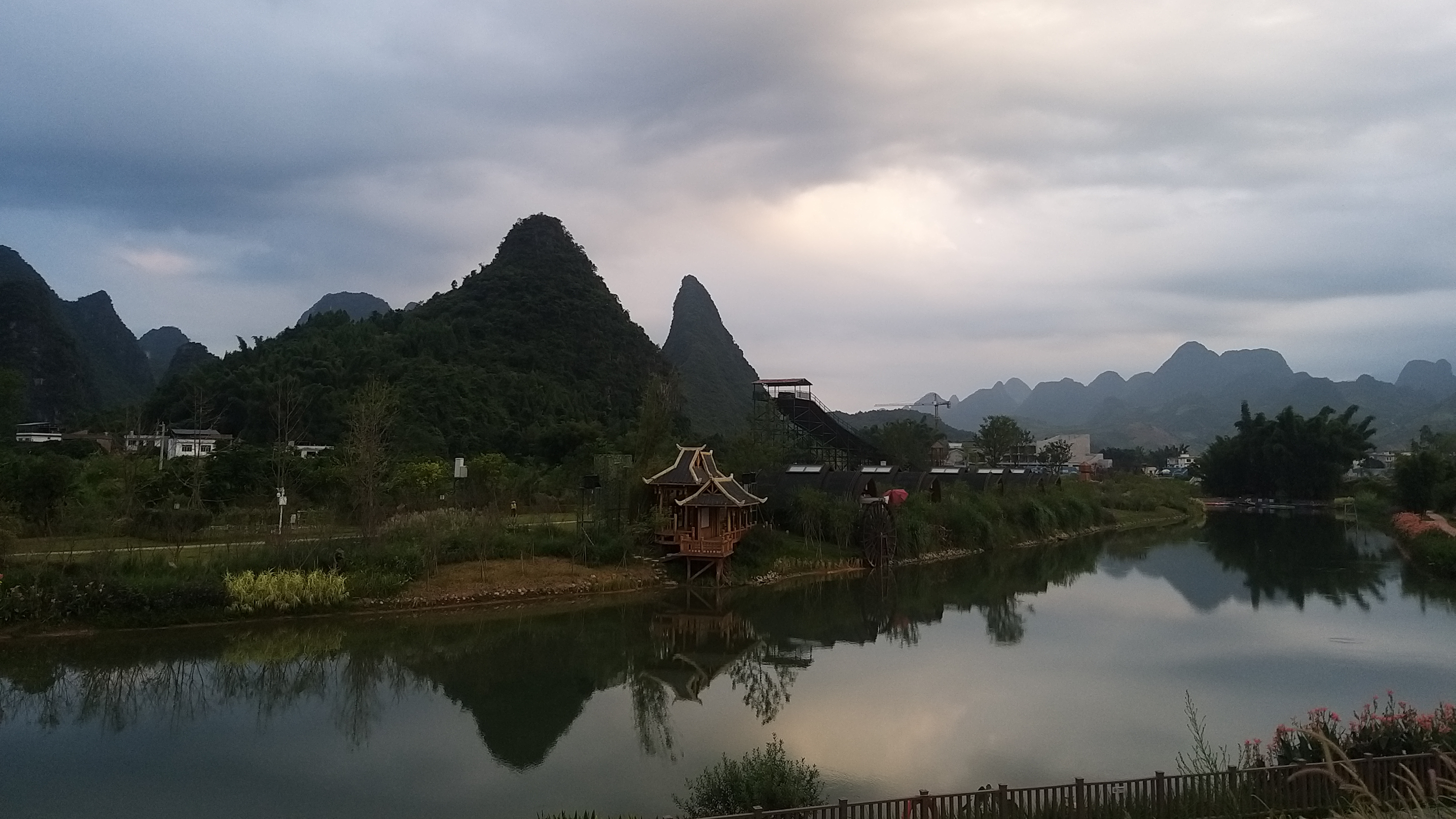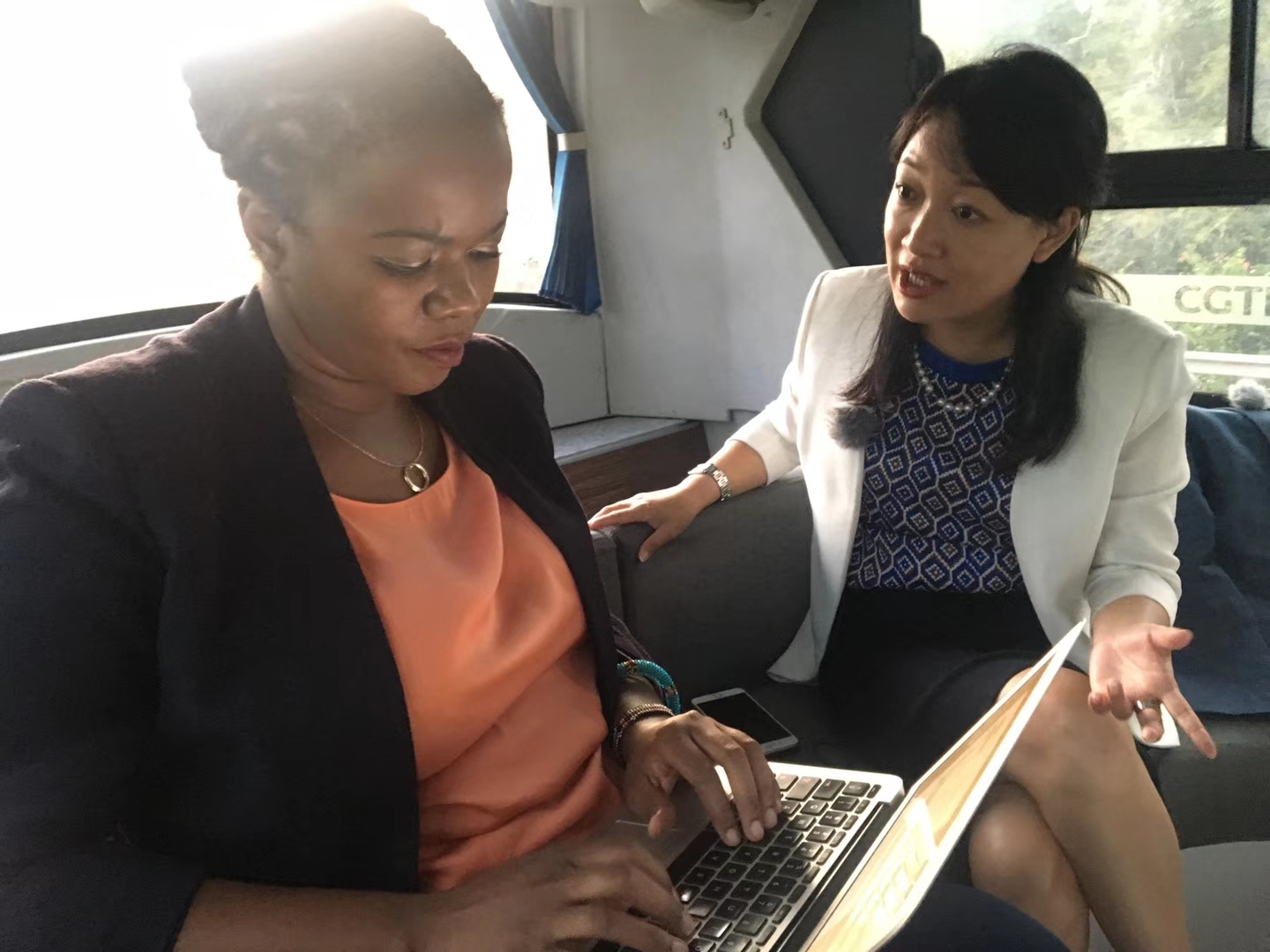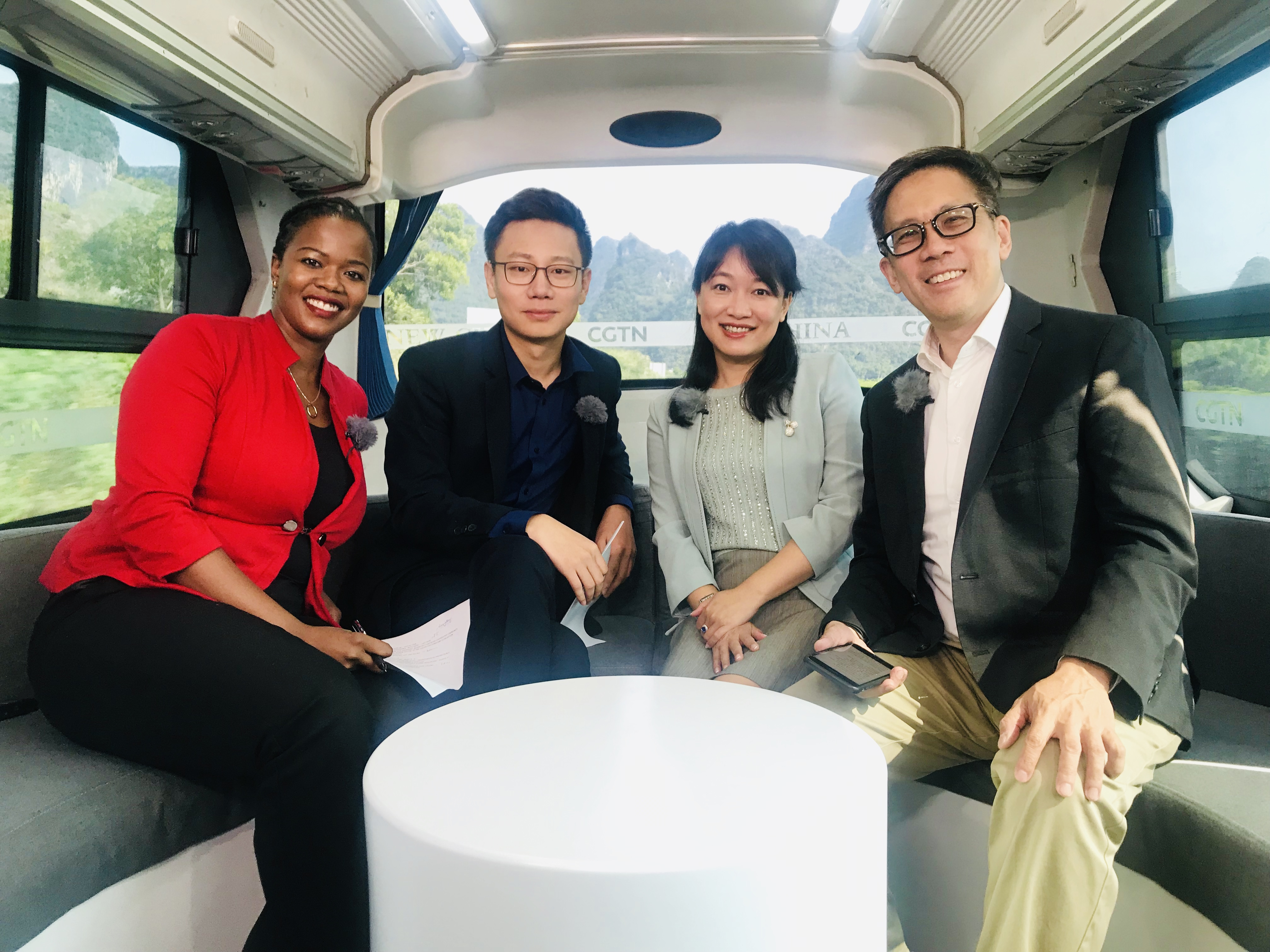

Guilin at dawn /CGTN Photo
My alarm goes off, and I reach blindly for my phone. My arm hits a lamp where it should not be, and I remember: I am not in my own bed. I'm separated by 8,000 km of land, mountains, sea and sand from my home in Nairobi.
The landscape beyond my hotel room curtains couldn't be further from what I'm used to. The busy streets have been replaced by the most serene dawn imaginable. Try waking up in Guilin in China's Guangxi Zhuang Autonomous Region. The iconic Karst mountain landscape is otherworldly and will leave you breathless.
But today, I have little time to admire the scenery. In a few hours, I will be making my first appearance on our studio-bus for the New China series. I'm a co-anchor on the southeast route; alongside Li Jianhua and our resident guests Andy Mok, a senior fellow at the Centre for China and Globalization, and Han Hua, president of the Beijing Belt and Road Cooperative Community.
Han is a familiar face. We met last year at the end of CGTN's Real Time China series. She's intelligent, warm, and kind in a way few people genuinely are.

Lindy and Han Hua /CGTN Photo
I'm quite impressed by our on-air team. We find our rhythm in live conversations fairly quickly, and present our segments in an engaging and informative way. But I'm particularly pleased to be sharing the stage with a fellow woman. In my years in television news, woman experts are, sadly, still somewhat rare.
A busy schedule of television live crosses and new media live-streaming programs fill up the day as we travel from Guilin to Guangzhou. I will be on this bus for the next 10 days, traveling up the southeast coast of China, tracing the country's transformation journey since 1949, in celebration of the 70th anniversary of the founding of the People's Republic of China.
But when the cameras are off, I find myself becoming increasingly curious about how changes in China's history have impacted my colleagues.
Han indulges my curiosity. "My grandmother was very lucky, she was able to go to school. Those days it was very rare for women to receive an education," she said. It was the 1920s, and Chinese society found it unnecessary for women to be educated beyond knowing how to care for a home. Even with an education, Han's grandmother never had a career. Instead, she got married and raised eight children.
Her mother also managed to get a good education with a stroke of good luck. The Cultural Revolution that began in 1966 required high school graduates to serve the nation by working on farms, rather than pursue higher education. But by then Han's mother had entered Harbin Institute of Technology and was able to complete her studies in electrical engineering.

The Southeast Dream Team /CGTN Photo
The story was very different for her husband's family, Han remarked. "My mother-in-law comes from a big family with many siblings. But when it came to education only the boys could go to school. After she got married, her husband moved to Beijing to work. Her natural choice would've been to go with her husband. But he strictly requested that she go back to Hebei and serve his family, cooking and cleaning, and raising their children," she said.
I ask Han what's the most significant change for women in China since 1949. "Freedom of choice," she said, adding that "ever since Chairman Mao said women hold up half the sky, it encouraged women to go out and work and not only be a housewife." Today Chinese women have the highest employment rate in the world, with 70 percent of employable women choosing to pursue careers.
Thinking of her mother-in-law, Han sympathetically added that "she later taught herself how to read some basic Chinese characters. But if she was given the choice right now, she would've made something great of herself."
Han's journey with us concludes on Day 4. As she heads home to celebrate the Mid-Autumn Festival with her husband and daughter, I'm glad to have held up half the bus with her.

Copyright © 2018 CGTN. Beijing ICP prepared NO.16065310-3
Copyright © 2018 CGTN. Beijing ICP prepared NO.16065310-3